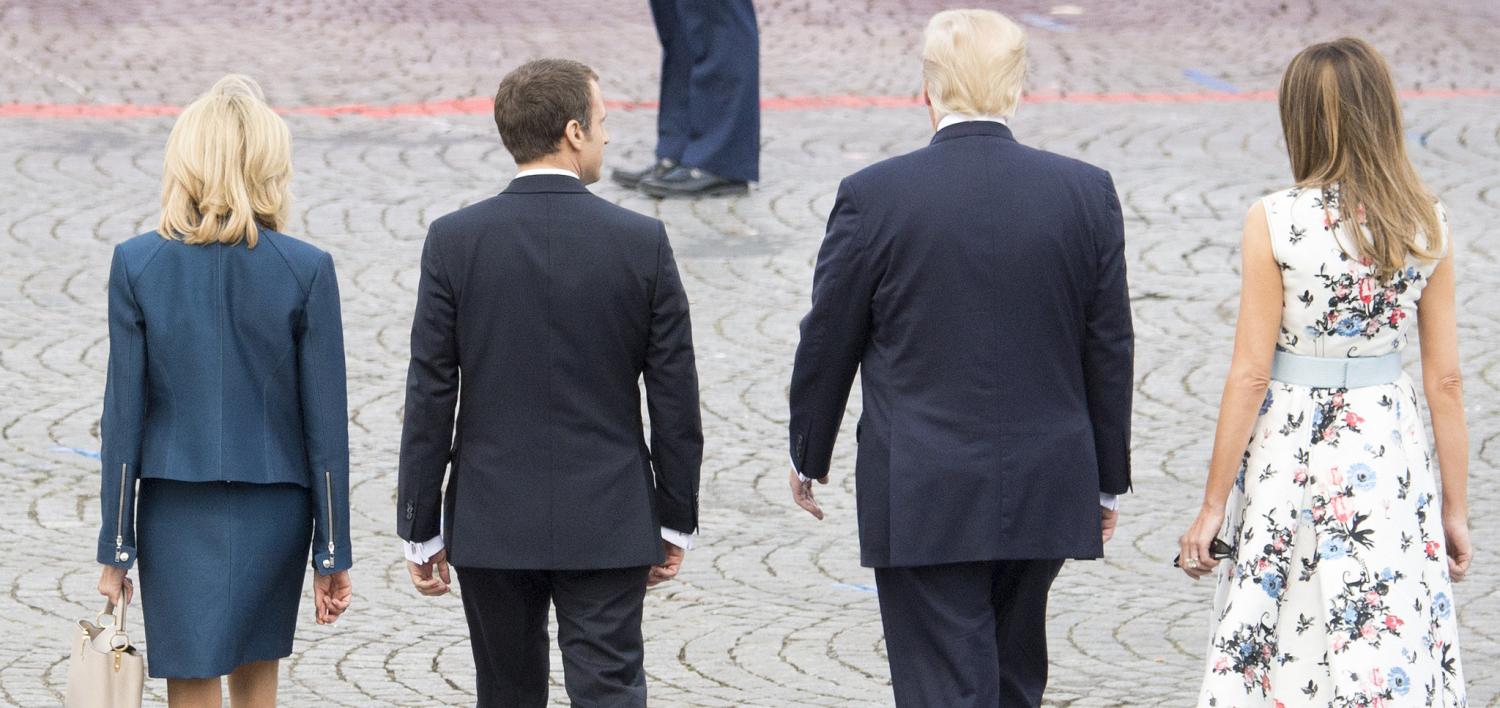French President Emmanuel Macron is considering a visit to Tehran in early 2018. Macron would be the first French President to visit Iran since Valéry Giscard d'Estaing in 1976, and given the tensions between Washington and Europe over the nuclear agreement known as the Joint Comprehensive Plan of Action (JCPOA), the implications of such a visit could be profound.
The French argue that there is a risk that Washington's confrontational approach will weaken the Iranian President while strengthening the conservatives. Without credible alternatives to the JCPOA, they say, the preservation of the status quo is preferable to creating a vacuum that favours the most ideological factions inside the Iranian political system.
Moreover, France has emphasised the importance of international law to achieving non-proliferation. In the case of the Iran deal, this means respecting the authority of the UN Security Council and the role of the International Atomic Energy Agency as the only legitimate authorities to oversee Iran's compliance with the deal. Paris is also concerned that regime change might return as a US policy option on Iran, even if French policymakers share US concerns over human rights abuses in Iran and the limits of President Rouhani's political authority.
Another difference between French and US approaches to Iran is whether to link the JCPOA and Iran's regional behaviour. Paris does not see any relationship between Tehran's support to Shia militias in Iraq or Hezbollah and the JCPOA. For France, these issues have to be negotiated with Tehran outside the framework of the deal.
To avoid the Cornelian dilemma between the transatlantic friendship and the promotion of French businesses in Iran, President Emmanuel Macron has presented himself as a mediator between Trump's America and Iran. Yet Macron's strategy faces hurdles.
First, the idea that the US somehow needs France in order to negotiate with Tehran is flawed. The new US strategy is founded on the assumption that there is nothing to negotiate with the 'rogue regime'. Second, President Rouhani has frequently said he prefers to talk directly with Washington rather than with European countries in general and France in particular because, in the end, Washington is the main decision-maker for the West – in Rouhani's words, they are kadkhoda (chief of the village).
Second, the main asset of French diplomacy in dealing with Tehran is the economic incentive for French companies to invest in the country. But it remains to be seen whether French economic actors will listen to their government or to US unilateral economic measures against Iran.
French-Iranian economic relations have been on the up since the implementation of the JCPOA in January 2016. Bilateral exchanges declined from €3.7 billion in 2004 to €515 million in 2014, but in 2015 they began increasing again. In 2016, French exports reached €722 million and imports €1.38 billion, including €1.3 billion of oil imports after the easing of sanctions.
Despite the intensification of bilateral trade, the main difficulty remains the issue of foreign investment in the Iranian economy. French companies remain very cautious in dealing with Iran as a destination for long-term investments, preferring instead to focus on short-term financial benefits. Iran is far from President Rouhani's target of attracting $50 billion of foreign investment in Iran in order to cut the unemployment rate, especially among youth.
Tehran is trying to persuade European capitals that Iran is a country of the future due to its untapped market and social modernity. But the US could also pressure French companies to exit the Iranian market in sensitive sectors such as telecommunications, infrastructure and energy. Trump's move to fully sanction the Islamic Revolutionary Guard Corps could deter French companies such as telecommunications giant Orange and construction company Vinci from working in Iran. The main US leverage is its market share – any companies active in Iran could be prevented from accessing the US market. This explains why financial relations between French banks and Iran are so difficult to restore, despite the political will of the French state.
A presidential visit to Tehran may indicate that Paris has made a choice between the defence of French economic interests and transatlantic friendship. Rather than building a bridge between Tehran and Washington, Macron may be turning the page on French neo-conservatism and going back to a more traditional and more independent 'Gaullo-Mitterrandism'.

